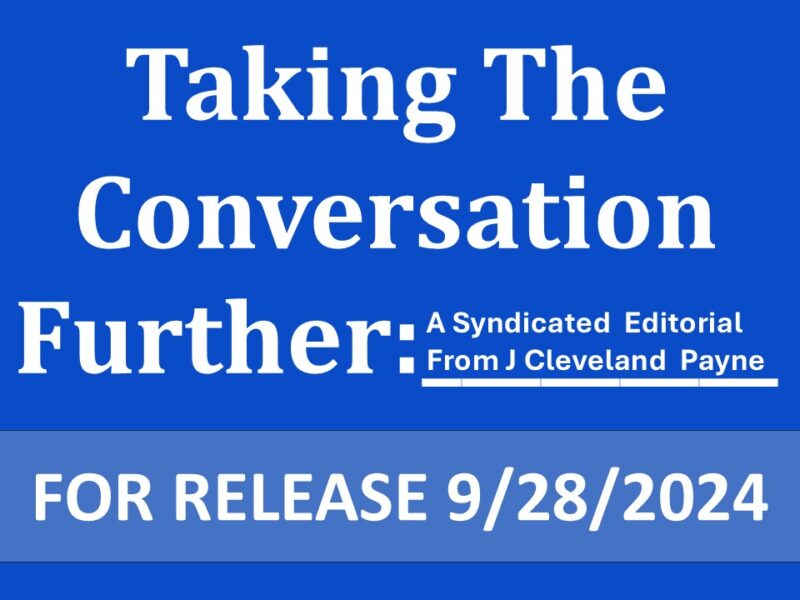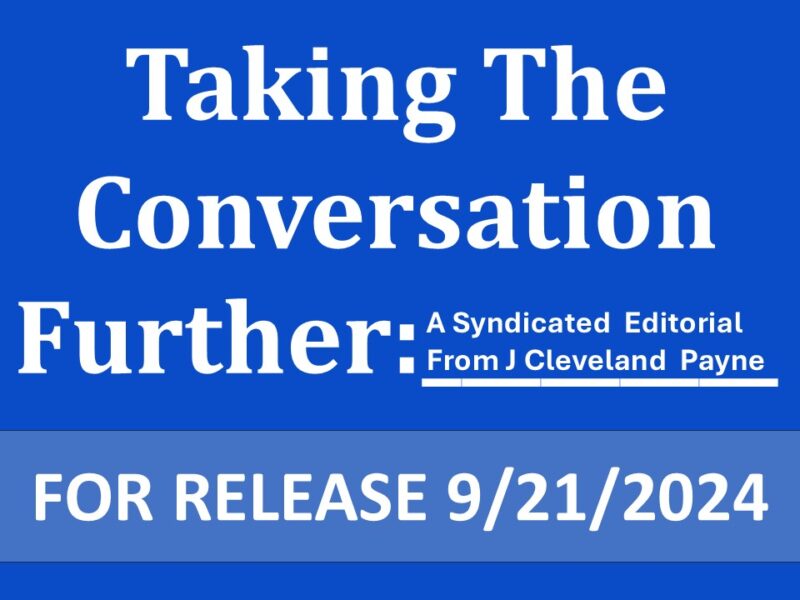FOR IMMEDIATE RELEASE
October 5, 2024
Contact:
J Cleveland Payne
More Better Media, LLC / The Conversation Project
http://thisistheconversationproject.com
theconversationinbox@gmail.com
Headline:
Politicians Take To Podcasting To Deliver Their Messages: Taking The Conversation Further Syndicated Column For Release October 5, 2024
Subheadline:
Trump And Harris Step To The Mics With Podcasters To Make Their Case For Your Votes
[Little Rock, Arkansas] — As the 2024 U.S. presidential election nears, Donald Trump and Kamala Harris are making concerted efforts to connect with younger voters. This increasingly influential demographic has shown fluctuating engagement in recent years. Traditionally, campaigns have relied on rallies, television ads, and press conferences to get their messages out. But in today’s media landscape, that’s no longer enough. Candidates now need to meet younger voters where they are, which often means in the digital world, particularly through podcasts and social media.
Donald Trump, known for his unconventional campaign methods, has found a natural home in podcasts, using them to reach younger, more diverse audiences. One notable appearance was on Lex Fridman’s podcast, where Trump engaged in a more in-depth, thoughtful conversation on policy, technology, and artificial intelligence. This was a sharp contrast to the high-energy rallies he’s known for, showing his willingness to tap into new platforms that offer deeper discussions.
Trump also sat down with Logan Paul on his podcast Impaulsive. Paul, a controversial figure with a massive following, particularly among younger generations, gave Trump a platform to speak directly to younger voters in a more casual, relatable way. On these shows, Trump has discussed everything from cancel culture to the economy, knowing that younger voters care about issues beyond politics. By being accessible through podcasts, Trump is attempting to broaden his appeal to a generation that may not watch cable news but consumes hours of digital content.
Vice President Kamala Harris is also taking a more modern approach to reach younger voters, particularly women. She is set to appear on the popular podcast Call Her Daddy next week, where she will discuss reproductive rights and other key issues significant to younger female voters. The choice of Call Her Daddy is deliberate. The podcast, originally focused on sex and relationships, has evolved into a cultural touchstone for young women, discussing everything from mental health to career growth.
For Harris, this is a prime opportunity to connect with a younger female demographic, many concerned about reproductive rights, gender equality, and student debt—issues that will likely be central to the upcoming election. Her appearance on Call Her Daddy shows a savvy understanding of where younger female voters gather and engage. By addressing these issues in a space that feels safe and familiar to many listeners, Harris has a chance to deepen her connection with them.
Trump’s podcast strategy reflects his understanding of the shifting media landscape and the importance of reaching an increasingly disillusioned audience with traditional news outlets. Harris’s team understands that podcasts offer a more intimate setting for political figures to present their policies and personal views in a way that traditional media can’t. This shift is a natural evolution of time and generational change. With the demise of traditional media and the aging of the people who still cling to those news sources, everyone must adjust to survive and maintain political power.
Historically, older voters have consistently turned out in larger numbers at the polls. They tend to be more invested in the political process, having experienced the consequences of elections over decades. Older voters don’t miss a chance to vote because they understand the value of their ballot and the hard-fought battles that gave them the right to participate in democracy. For many of them, voting is a civic duty that they’ve embraced throughout their lives.
Younger voters, on the other hand, have traditionally been more disengaged. Many take time to realize the significance of voting, often needing to understand how long it took to secure the right to vote and the impact that elections have on their daily lives. However, this dynamic is starting to shift. With the 2018 and 2020 elections seeing higher youth voter turnout, it’s clear that the younger generation is beginning to recognize the importance of their vote. They are starting to see that political decisions impact issues they care about—climate change, education, and economic inequality—more immediately.
The 2024 election may mark a turning point as younger generations become more politically active and realize how much power the older generation has over them. Millennials and Gen Z are increasingly aware that their lives are being shaped by decisions made by leaders from older generations who may only sometimes prioritize the issues they care about most. The result is a growing sense of urgency among younger people to take control of their political lives.
We head toward election day in November 2024 with new awareness manifesting in grassroots organizing, social media activism, and an increased focus on reproductive rights, student debt relief, climate change, and social justice. As the younger generation becomes more informed and engaged, they are poised to reshape the political landscape. Both Trump and Harris recognize this shift, and their podcast appearances are just one example of trying to stay relevant to a group of voters that will play a decisive role in the 2024 election. Whether through podcasts, social media, or grassroots efforts, younger voters are making it clear: their voices matter and are ready to be heard.
About More Better Media, LLC & The Conversation Project:
The Conversation Project is a news and information-gathering project that operates under More Better Media, LLC (MBM). MBM has a bold commitment to help expand the world’s knowledge base, striving to provide high-quality content that educates, informs, and inspires. The Conversation Project produces Things You Might Not Have Heard, a weekday morning newscast, and a digest of popular stories showcased over the week called The Weekly Wrap. Both can be found at http://thisistheconversationproject.com.
For Media Inquiries: J Cleveland Payne
Owner / Producer
501-240-9670
theconversationinbox@gmail.com



